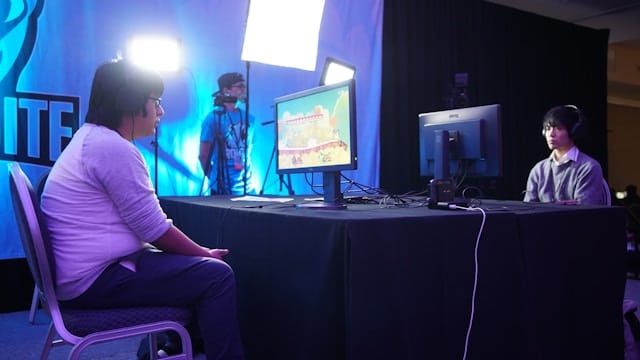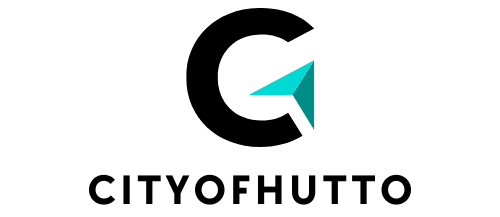How to Use Periodization in Esports Training to Peak for Major Tournaments?

Esports has evolved into a billion-dollar industry, attracting millions of players and spectators around the globe. The rise of esports has led to a newfound focus on training regimens, designed to boost performance and give players the edge they need to thrive.
Periodization, a technique traditionally employed in traditional sports training, is now being adopted by esports teams. It involves a systematic approach to planning and executing training programs, generally over a specific time period. Periodization is a proven method of improving performance by enhancing both the physical and psychological attributes of athletes, and now, esports players.
Cela peut vous intéresser : What’s the Impact of Nasal Breathing Techniques on VO2 Max in Middle-Distance Runners?
Understanding Periodization
Periodization is not a new concept. It has been used in sports training for decades to help athletes peak at the right time for major events. It’s a structured approach to training that involves varying the volume, intensity, and type of training throughout specific periods or phases.
In the context of esports, periodization can be applied to improve various aspects of game performance including reaction times, strategic thinking, and stamina. Just as traditional athletes require a broad range of strength, endurance, and skill-based training, esports players need a similar mix of physical and mental training to compete at the highest level.
A lire également : What’s the Role of Exergaming in Physical Therapy for Sports Injuries?
The Importance of Physical Strength in Esports
While esports may not demand the same level of physical exertion as traditional sports, evidence suggests that physical strength and fitness can significantly enhance a player’s gaming performance. A study published in the Journal of Strength and Conditioning Research discovered that better physical fitness resulted in improved performance in a series of esports tasks.
Periodization training can accommodate specific physical training that targets the unique needs of esports players. This may involve exercises to enhance hand-eye coordination, boost cardiovascular endurance, and increase muscular strength, particularly in the upper body. Over time, these physical improvements can translate into sharper reflexes, longer playing times, and better overall gaming performance.
Mental Strength and Endurance in Esports
The mental aspect of esports cannot be underestimated. Players often need to make split-second decisions, coordinate with their team, and stay concentrated for extended periods of time. Mental fatigue can quickly erode performance, leading to poor decision-making and decreased reaction times.
Periodization provides a structured approach to incorporating mental endurance training into an esports regime. This might include exercises to improve concentration, strategies to manage stress and anxiety, and techniques to enhance strategic thinking and decision-making. Over a specific period, regular mental training can lead to significant improvements in performance, particularly in high-pressure tournament situations.
Implementing Periodization in Esports Training
Implementing periodization into an esports training regime requires a careful and strategic approach. It involves breaking down the training schedule into specific periods or phases, each with its own goals and objectives.
For instance, a typical periodization cycle might look something like this:
- Preparation Phase: This is the start of the training cycle, focusing on building physical strength and endurance, and developing basic gaming skills. This phase typically takes up the most significant portion of the training cycle.
- Competition Phase: As the tournament approaches, the focus shifts towards sharpening specific gaming skills and strategies. Physical training intensity is reduced to avoid fatigue, while mental endurance training continues.
- Transition Phase: After the tournament, the focus is on recovery and reflection. This is the time to review performance, identify areas for improvement, and start planning for the next training cycle.
The Role of the Coach in Periodization
Just as in traditional sports, the role of the coach in implementing periodization in esports is critical. The coach is responsible for developing the training plan, adjusting it based on the team’s progress and performance, and ensuring that the players are peaking at the right time for major tournaments.
Coaches need to consider the specific demands of the game, the individual strengths and weaknesses of the players, the team dynamics, and the timeline leading up to major tournaments. It’s a complex task, but with the right approach, periodization can offer a powerful tool for maximizing performance in esports.
Remember, periodization is not a one-size-fits-all approach. It’s a flexible and adaptive strategy that can be tailored to meet the unique needs of each esports team. With careful planning, periodization can help your team peak at just the right time, giving you the best possible chance of success in major tournaments.
Tailoring Periodization for Individual Esports Players
Just as each traditional sport has its specific training needs, so does each esport. The type of game, the role of the player within the team, and the individual strengths and weaknesses of the player are some of the factors that should be considered when developing a periodized training program.
For instance, an esport like League of Legends requires strategic thinking, team coordination, and quick reaction times. Using periodization, the coach may structure the training program to focus on improving these specific skills. In the preparation phase, the emphasis might be on building mental endurance through challenging strategic tasks and drills. In the competition phase, the focus could shift to refining strategies and boosting reaction times.
Periodization also allows for the inclusion of physical fitness programs, tailored to the needs of the esports player. Resistance training can be included in the preparation phase to build strength and endurance, particularly for games that require prolonged playing time. Again, the volume and intensity of this training would be systematically varied throughout the training cycle.
A careful review of relevant studies and articles on platforms like Google Scholar can offer valuable insights into the optimal mix of physical and skill-based training for different esports. This ensures that the periodization plan is evidence-based and designed to maximize esports performance.
Conclusion: Harnessing the Power of Periodization in Esports
Periodization in esports is about more than just a training schedule. It’s a strategic approach to performance enhancement, designed to ensure that players are at their peak for major tournaments. From physical fitness to mental endurance and strategic thinking, periodization encompasses all aspects of esports performance.
The coach plays a pivotal role in implementing periodization, developing the training plan, and adjusting it as needed. Using tools like a PowerPoint slide can aid in visualizing the training cycle and tracking progress over time. The coach also needs to consider the specifics of the game, the team dynamics, and the individual player profiles when developing the periodized training program.
It’s important to remember that periodization is not a rigid structure, but rather a flexible strategy that can be adapted based on performance, progress, and the specific demands of the esports environment. It’s about finding the right balance between physical and mental training, and ensuring that players are given adequate time for recovery and reflection.
In conclusion, periodization offers a proven and effective method of maximizing performance in esports. So, whether you’re a professional esports team or an amateur player looking to improve your game, consider incorporating periodization into your training regime. It may just give you the edge you need to succeed in your next tournament.
